Remote-controlled (RC) cars represent a thrilling intersection of technology, sport, and imagination. With roots tracing back to the early 20th century, these miniature machines have evolved significantly over the decades. Today, RC cars are not only popular among young enthusiasts but also appeal to adults seeking a rewarding hobby. Whether you’re interested in racing, off-roading, or simply building models, there is something for everyone in this expansive domain. This article will delve into various aspects of RC car. Moreover, we will explore the types, key components, and the exhilarating experiences they offer.
Types of RC Cars: Racing, Crawling, and More
On-Road RC Cars
On-road RC cars are designed primarily for speed and agility. They boast streamlined bodies and specialized tires, enabling exceptional handling on smooth surfaces. These cars usually have lower ground clearance. Consequently, they can achieve greater speeds compared to other types. The focus here is on racing, which can be both a competitive and social activity. Furthermore, many enthusiasts participate in organized races, showcasing advanced skills and dramatic skill sets.
When it comes to choosing an on-road RC car, factors like scale, battery life, and weight matter. Typically, the scale denotes the size relative to real cars. A popular option is the 1:10 scale, which provides an engaging driving experience. Moreover, materials used in these cars affect performance and longevity. Lightweight materials allow cars to go faster, while durability ensures they withstand inevitable crashes.
Off-Road RC Cars
In contrast to their on-road counterparts, off-road RC cars are built for rugged terrains. These include dirt tracks, rocks, and even sand. Their sturdy design, deeper treads, and higher ground clearance prepare them for challenging conditions. With powerful suspensions, off-road RC cars can tackle steep inclines and rough paths easily. This makes them particularly appealing to adventure seekers.
Off-road vehicles often come with four-wheel drive capabilities. This feature enhances traction, providing better control and stability. Additionally, many enthusiasts enjoy customizing their off-road setups to optimize performance. Alterations may include modifying suspensions or improving tires. However, mastering the operation of off-road vehicles requires practice. New users may initially face challenges but will gain skills with time.
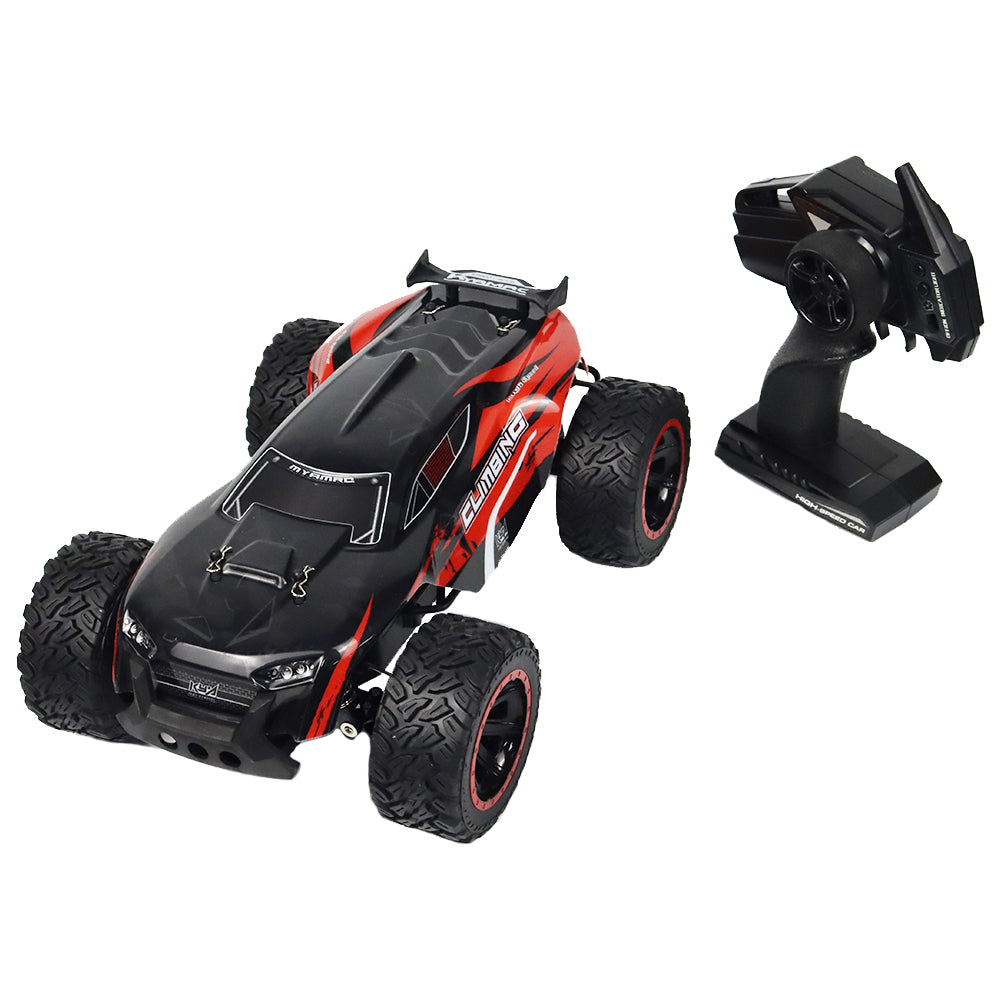
Key Components of RC Cars: Understanding the Basics
The Chassis
The chassis forms the foundation of an RC car. It is the structure that holds all the components together. A strong and lightweight chassis improves overall performance. Typically, chassis are made from materials like plastic, aluminum, or carbon fiber. Each material has its pros and cons. For instance, while plastic is lightweight, it may not offer the strength of aluminum.
Additionally, the chassis supports various electronic parts, from the motor to the receiver. A well-designed chassis layout can significantly enhance speed and maneuverability. Furthermore, it allows for easier maintenance and repairs, which are inevitable in any hobby. Knowing how to customize or replace chassis components can greatly enhance the driving experience. Enthusiasts often explore different layouts to find the most suitable for their style.
The Motor
The motor is the heart of any RC car. It provides the necessary power for thrust, influencing speed and acceleration. Generally, RC cars use two types of motors: brushed and brushless. Brushed motors are simpler and usually cheaper, making them great for beginners. However, they may have lower performance compared to brushless motors.
Conversely, brushless motors provide higher efficiency and speed. They are also more durable and require less maintenance over time. Enthusiasts often prefer brushless motors for competitive racing due to their performance. Understanding the differences between these two types will help you choose wisely. Selecting the appropriate motor can shape your driving experience and future upgrades.
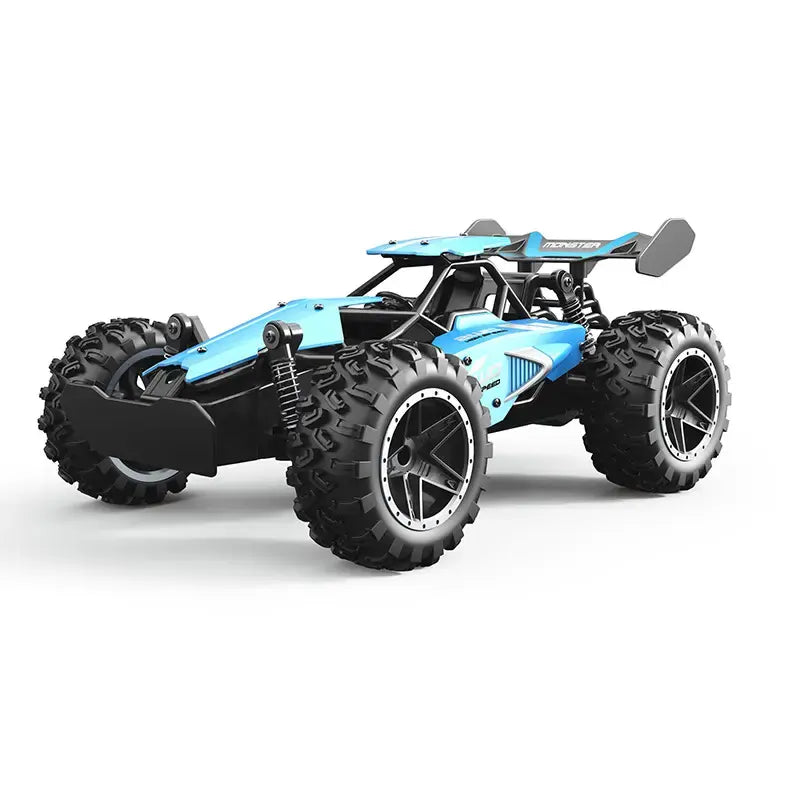
The Exciting World of RC Car Racing
Competitive Racing Events
RC car racing has gained considerable popularity worldwide. It encompasses various events ranging from local races to international competitions. Moreover, specialized tracks designed for both on-road and off-road cars add to the excitement. These events attract participants and spectators alike, fostering a sense of community.
Racers train to enhance their skills, mastering techniques like drifting and cornering. Preparation involves not only practice but also tuning their cars to ensure optimal performance. Engaging in competitive racing allows enthusiasts to test their skills passionately. Furthermore, various racing leagues and organizations create a more structured racing environment.
Building a Racing Community
Over the years, a vibrant community surrounding RC car racing has formed. This community offers a platform for sharing knowledge, experiences, and resources. Many enthusiasts join online forums, local clubs, or social media groups to connect with like-minded individuals. The camaraderie built through shared experiences enhances the overall enjoyment of the hobby.
Participating in community events such as races helps foster friendships and rivalries. These relationships evolve, often leading to collaborative projects or car modifications. Networking with fellow enthusiasts can provide invaluable insights, resulting in both improved skills and knowledge.
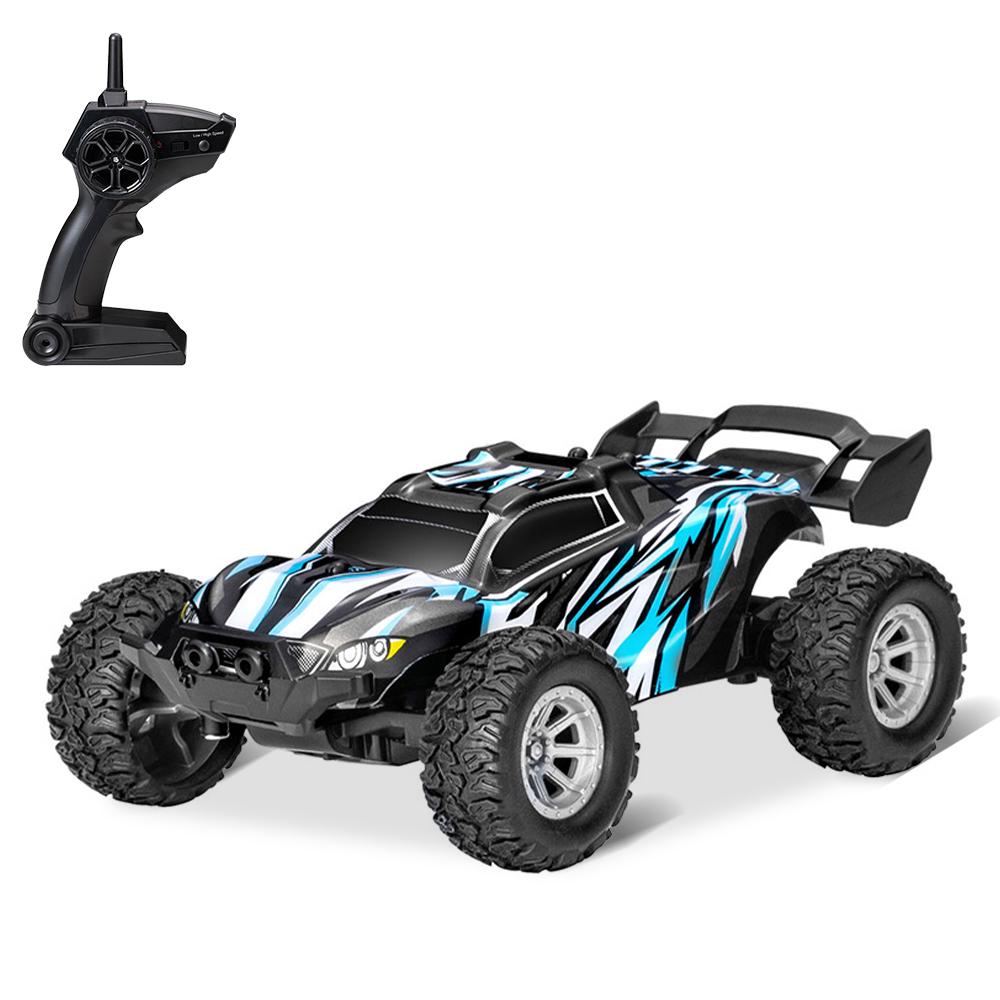
The Joy of Building and Customizing Your RC Car
Model Building as a Hobby
Building an RC car from scratch or assembling a kit brings immense satisfaction. This process involves various skills, including planning, organization, and problem-solving. Many hobbyists find the creative aspects particularly rewarding. They enjoy customizing aesthetics to reflect personal styles.
Besides aesthetics, mechanical skills come into play. Understanding how to assemble components correctly is vital. Additionally, these skills can be applied to repairs and upgrades, enhancing the longevity of the car. Many builders appreciate the learning curve associated with this hobby. It sharpens their technical skills, broadening their knowledge of RC technology.
Customization Options
Customization adds a personal touch to any RC car, elevating it beyond a mere toy. Enthusiasts often upgrade motor types, improve suspension systems, or modify gear ratios. These alterations can significantly alter performance and result in a more enjoyable experience.
Modifications extend beyond performance. Many hobbyists personalize their cars by painting bodies or adding decals. This creative expression can result in uniquely styled models. Spectators often admire the visual appeal, adding to the enjoyment of racing events. Customizing RC cars not only enhances performance but also fuels creativity.
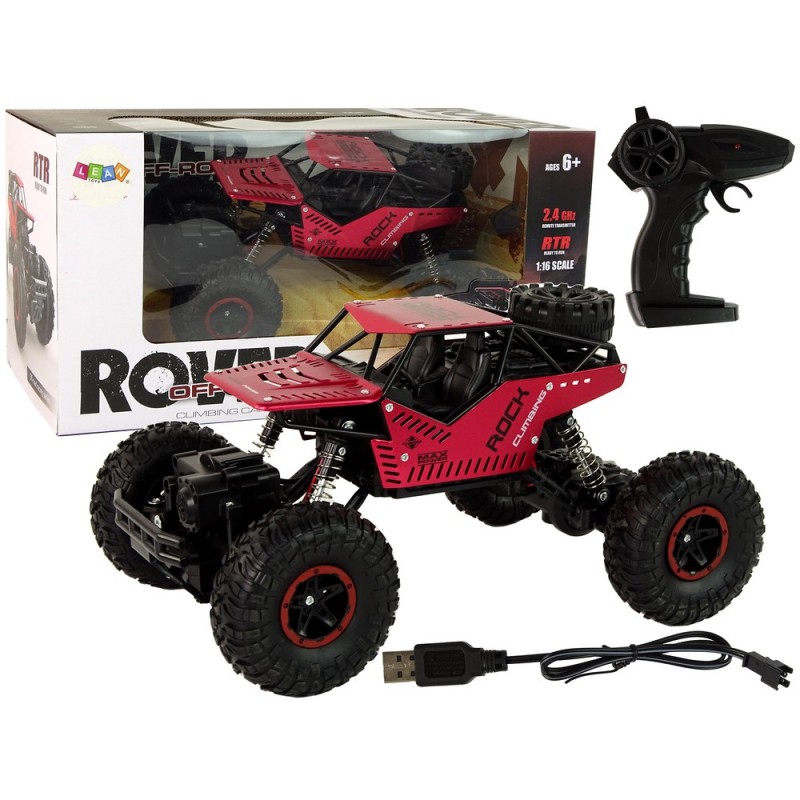
The Future of RC Cars: Innovations and Trends
Technological Advancements
As technology continues to evolve, so does the world of RC cars. Innovations such as electric power systems have enhanced performance and reduced noise. Furthermore, advancements in battery technology are resulting in longer runtimes. These improvements enable hobbyists to enjoy extended sessions without frequent recharges.
Additionally, incorporating smart technology is gaining traction. Programmable features allow users to customize driving modes, making racing more engaging. Sensors and GPS systems are emerging as well, enhancing maneuverability. As a result, the driving experience has become more immersive and interactive.
Emerging Trends
Various trends are shaping the RC car landscape. For instance, environmentally friendly options are emerging, addressing growing environmental concerns. Electric-powered RC cars have grown in popularity due to their lower carbon footprint. Moreover, interest in DIY kits is increasing, appealing to a new generation of enthusiasts.
Finally, the excitement around drone technology is spilling into the RC community. Many enthusiasts are exploring hybrid models combining RC cars and drones, adding another dimension to the hobby. As technology continues to advance, the future of RC cars promises even more thrilling innovations.
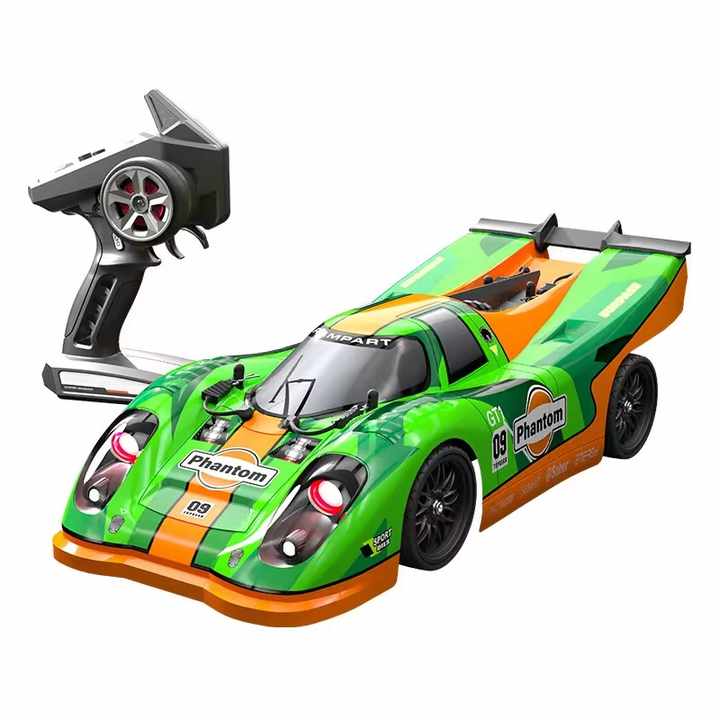
Customization and Personalization
Modifying Your RC Car
Customization is a unique aspect of the hobby. Enthusiasts often modify their cars for improved performance or appearance. Upgrading components like the motor and suspension can yield significant gains. Additionally, personalizing the paint job makes the vehicle distinctly yours. This creative freedom enhances the experience and fosters a deep connection with the vehicle.
The Art of Detailing
Beyond functional modifications, detailing your car can be a relaxing pastime. Applying decals or creating custom designs adds to its individuality. Enthusiasts often share their creations through social media platforms. Sharing builds not only builds pride but also inspires others in their customization journey.
Tips for Advanced Enthusiasts
Exploring Advanced Techniques
For seasoned enthusiasts, exploring advanced techniques can offer new challenges. Tuning suspensions and balancing weight distribution can dramatically improve performance. Moreover, advanced electronics like telemetry systems add another layer of complexity. Understanding these nuances can lead to significant advantages in racing and enjoyment overall.
Networking and Community
Connecting with other advanced enthusiasts is essential. Joining forums or local clubs allows sharing knowledge and experiences. Most importantly, these friendships can lead to collaborations on projects. Networking enriches the experience and provides access to exclusive events. Therefore, taking that first step can lead to exciting opportunities.
Conclusion: The Lasting Appeal of RC Cars
RC cars offer a unique blend of excitement and camaraderie. From building and customizing to racing and connecting with others, enthusiasts find countless avenues for enjoyment. This hobby transcends age, appealing to everyone from children to adults. The thrill of controlling a miniature vehicle fuels the passion among enthusiasts, creating a vibrant community.
As both technology and trends evolve, the world of RC cars continues to expand. Enthusiasts have much to look forward to, from technological innovations to competitive opportunities. The future of this hobby promises excitement and community, creating lasting memories when shared with friends and family. Embracing this captivating world can ignite a passion that lasts a lifetime.
